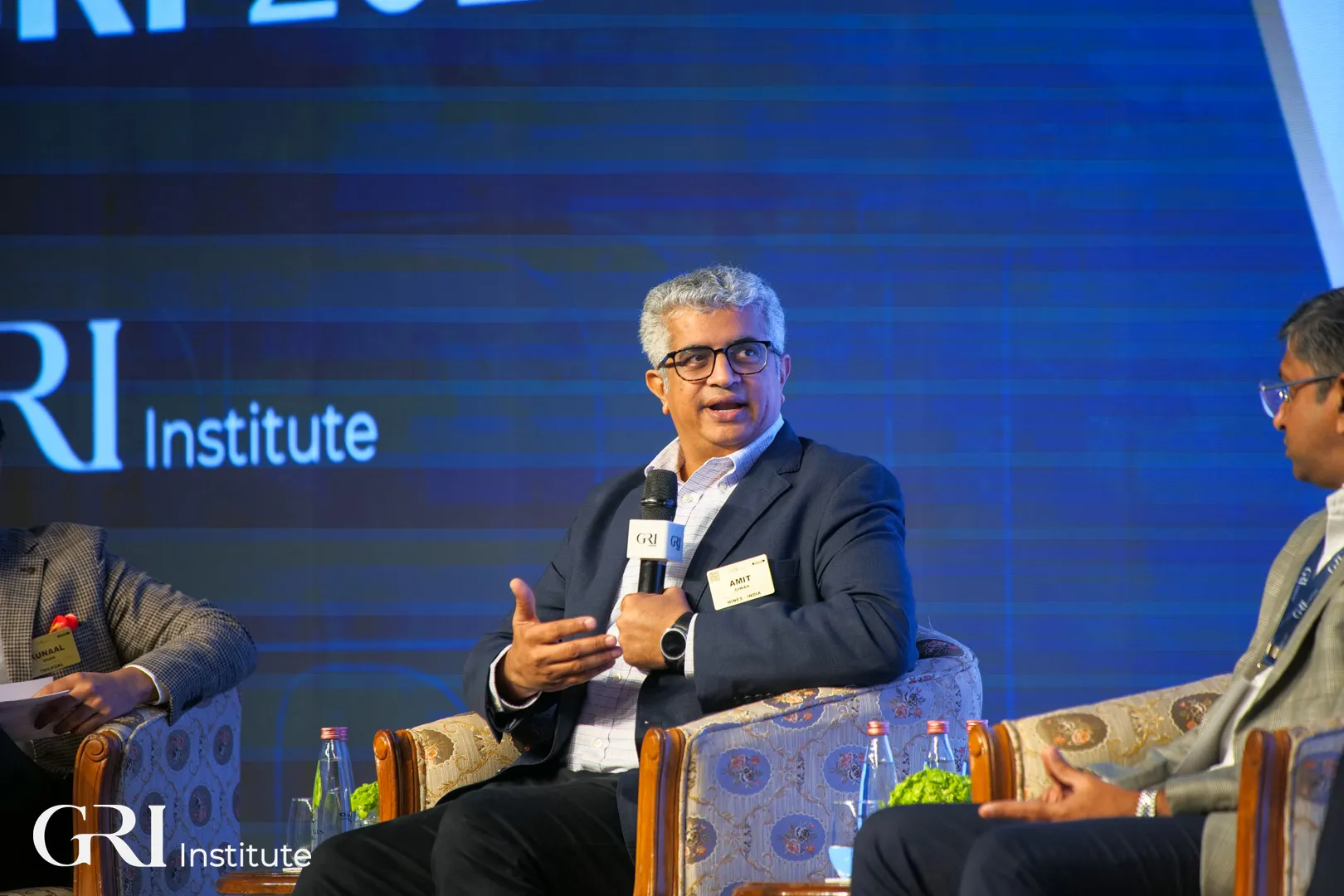 GRI Institute
GRI InstituteCross-Border Confidence: India’s Real Estate Market Comes of Age
Top executives agree global confidence is high, but success now demands navigating a new landscape of sophisticated risks
- India's real estate market has matured beyond speculation. Success now demands operational excellence and deep local expertise to navigate a more predictable, institutional landscape.
- Investors face new, sophisticated risks, chiefly unpredictable project approvals and significant execution challenges due to both contractor and labour shortages.
- The market is more resilient than in the past. The office sector remains exceptionally strong, now bolstered by domestic occupiers making up 45% of consumption and diversifying demand.
India's real estate market has entered a new era of maturity, attracting strong cross-border confidence with its robust growth.
At the India GRI 2025 summit, senior industry leaders concluded that while global investor sentiment is higher than ever, the landscape has evolved dramatically.
The consensus was clear: India is no longer a market for speculative, short-term plays, but one that rewards operational excellence and a nuanced understanding of its unique challenges

Foreign investment in India is driven by strong growth, urbanisation, yield potential, and regulatory reforms. (GRI Institute)
Past Lessons, Present Maturity
Reflecting on the wave of foreign investment between 2005 and 2008, where many international investors faced significant challenges, the panellists identified critical lessons that have shaped the current market.One executive recalled that period as a time when some deals were made with insufficient due diligence, fuelled by a sense of urgency to enter the market. Key issues of that era were multifaceted. Investors sometimes entered with complex financial structures based on assumptions that did not align with the local regulatory environment.
Compounding this was a gap in local understanding; developers often lacked financial sophistication, and foreign funds sometimes underestimated the need for extensive on-the-ground expertise.
The market itself was characterised by a "herd mentality," with a lack of the specialisation and research-backed strategies that are common today.
Today, the market is vastly different. The regulatory framework is much clearer, supported by years of case law that provides greater predictability for investors. Developers have become more disciplined and specialised, and the professional talent pool has matured significantly.
A New Risk Landscape
While the market has matured, it presents a new set of complex challenges that require sophisticated management. The most significant and persistent risk remains project approvals, where unpredictable timelines can impact schedules for IRR-driven foreign investors.With infrastructure development booming, a serious execution risk has also emerged, driven by two main factors. Firstly, the number of high-quality contracting firms is limited and they are stretched thin, often declining projects under a certain scale.
Secondly, panellists highlighted a surprising shortage of both skilled and even unskilled labour across major cities, with the challenge becoming so acute that developers are competing fiercely for workers.
Additionally, macroeconomic risks, including volatile credit cycles and exchange rate depreciation, can potentially erode returns for foreign funds.
Sector-by-Sector
A deep dive into specific sectors reveals a varied landscape. The office market remains exceptionally strong, with India accounting for 70% of Asia's total office absorption.A major shift making the market more resilient is the rise of domestic occupiers, who for the first time made up 45% of office space consumption in the first half of the year.
Data centres offer huge growth potential, driven by digital adoption and cloud expansion, though it is a highly specialised business requiring significant capital investment and navigating a market dominated by a few key tenants. Significant consolidation in this sector is likely on the horizon.
Meanwhile, the residential sector shows some signs of stress in markets like the NCR where inventory is high.

Logistics, warehousing, and selective commercial assets are likely to be the most attractive real estate segments in the coming years. (GRI Institute)
A Resilient Outlook
When asked about the impact of global geopolitics, the panellists agreed that while there would be an effect, the Indian real estate sector is now more resilient than in the past. The diversification of the economy and the office occupier base provides a cushion that did not exist a decade ago.
The session concluded on a note of pragmatic optimism. India's unique combination of scale, growth, and increasing institutionalisation makes it a compelling destination for long-term capital.